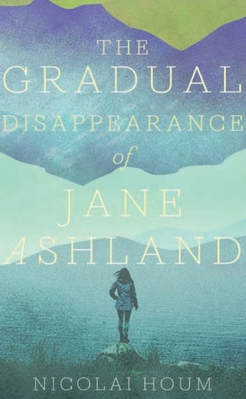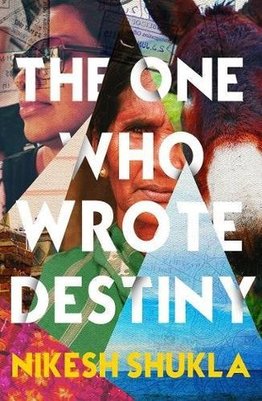The Gradual Disappearance of Jane Ashland
by Nicolai Houm translated by Anna Paterson
Cutting back and forth in time, we gradually get a sense of who Jane is, where she is, and why. Although angry and withholding, Jane is a sympathetic character right from the start. While her predicament is tragic, there’s a thread of hope that perhaps nature will prove her salvation. Nicolai Houm has previously published two other novels which were critically acclaimed in Norway. The Gradual Disappearance of Jane Ashland is the first publication of his work in English. Thanks to Pushkin Press for my advance proof copy. For other recent reads about writers and writing, see last November’s post, Two novels about writers and the real-life characters who get beneath their skin. For more musings on literary grief, see my post Good grief for writers?
The One Who Wrote Destiny by Nikesh Shukla
Focusing on a key moment in the life of each of the four main characters in turn (poor Rakesh, the writer, not even given the chance to tell his own story but having it told by a series of not altogether sympathetic characters he meets after his sister’s funeral), The One Who Wrote Destiny is a family saga of three generations of British Kenyan Gujaratis. It’s about difference, within families, countries and communities, and whether believing in destiny is adaptive or otherwise. It’s also about the legacy of absent parents, Mukesh must have struggled to care for the twins when he was grieving the loss of their mother. Most powerfully for me, it’s a story of the mutations of British racism over the past half century, from the mob armed with bricks and hate-filled words gathering outside the hall where Mukesh and his future wife are staging the Ramayana to Rakesh being pressurised to tell a racist joke on a (thinly-disguised) comedy quiz show on TV. I did find some of the novel’s jokes about cultural appropriation a little overdone (having never come across the tautology ‘chai tea’) – but maybe I would say that, being white. Having heard him speak at a conference last year, I was very pleased to have the opportunity to read Nikesh Shukla’s third novel in advance of publication. Thanks to Atlantic books for my review copy.























 RSS Feed
RSS Feed





















